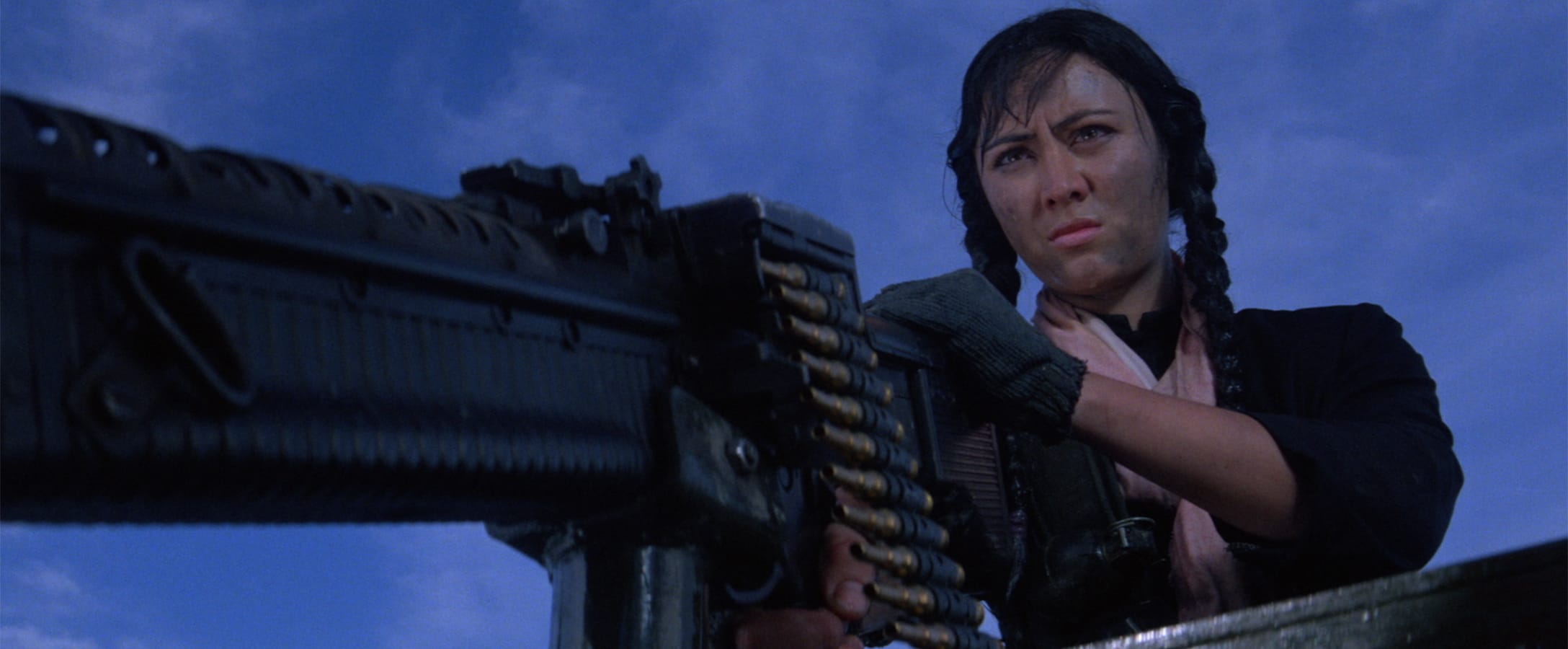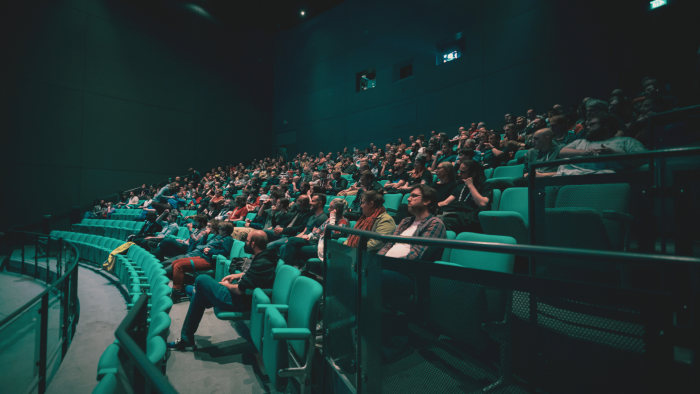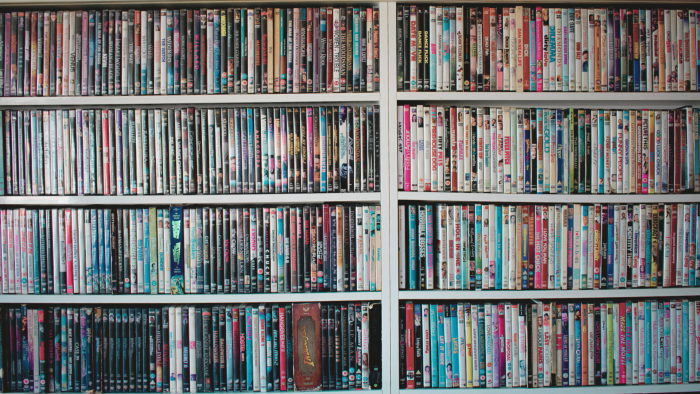So many great Vietnam War movies exist that inviting one more into your home is asking a lot. But what about a Vietnam War movie where coconut leaves are lethal weapons, the big bad dresses like Dr. Evil and titters like Homer Simpson, and practically every fight scene qualifies for kung-fu cinema’s all-timer canon?
If you prostrate at martial arts legend Sammo Hung’s altar and haven’t seen Eastern Condors, then The Criterion Collection’s December release of this previously region-locked, no holds barred classic is the perfect excuse to catch up. Its arrival feels uneasily relevant given the instigating premise: the United States government rounds up a handful of migrants and returns them to their countries of origin. “Who’d have thought that after all the hardship to get out, we’d just end up back here anyway?” Hung’s co-protagonist character Ming-sun opines early on, driving the point home.
Happily, the script, authored by repeat Hung collaborator Barry Wong, isn’t as entirely serious as that line implies; it’s even preceded by gallows humor. “What if the parachute doesn’t open?” asks Chin (Charlie Chin). “Then you’ll be first to land,” Lieutenant Colonel Lam (Lam Ching-ying) brusquely answers. Memorable but brief exchanges like this litter Eastern Condors, and offset the nihilism embedded in its dual identity as a Vietnam War film and a “men on a mission” film, where cohorts of doomed heroes enter hostile territory on dangerous, high-risk operations. (Think Saving Private Ryan, The Guns of Navarone, Seven Samurai, or the Lord of the Rings trilogy.)

A Bloody Good Time
Most movies fitting that designation aren’t cheery fare, and Eastern Condors naturally follows suit. But though Hung’s film is bleak and bloody, he assembles that grim framework with such impish humor and savagely executed choreography that Eastern Condors avoids strident sensationalism and empty moralizing. He and his cast have good, mean fun instead, capped off by a brawl in an underground hangar where nonstop destruction is shot using protean camerawork to complement the actors’ contrasting physiques and styles.
Lieutenant Colonel Lam and his superior, Colonel Yang Yeung (Melvin Wong) have been tasked by United States military brass with sneaking into Vietnam to raze an American bunker stockpiled with missiles; it’s 1976, three years since the U.S. withdrew from the country, but that’s no excuse to let heavy ordnance fall into VC hands. So Lam collects his ragtag team of convicts to take care of business across the Pacific, where they’re joined in thrilling heroics by three Cambodian guerillas (Chui Man-yan, Ha Chi-chun, and Hung’s future wife, Joyce Godenzi) and a quick witted black market trader (Yuen Biao).
Eastern Condors’ various components are familiar in genre-specific contexts. Rat shares traits with Richard Ng Yiu-hon’s drifting conman character in David Chung’s Magnificent Warriors, which opened a few months before Eastern Condors in 1987. The plot’s rhythm is set by battles that end in casualties for the heroes, a staple dynamic in many “men on a mission” films, and the U.S. government is the real villain for getting involved in Vietnam in the first place.

American Dreamers
But Hung’s direction synthesizes these competing elements into a unique makeup of anger, pessimism, and pride; the film is pissed off, hopeless, and brimming with national esteem all at once. “Idiot Americans, f**king America, goddamn America!” Dai-Hoi (Billy Lau) rails in Eastern Condors’ denouement, paying off the film’s withering critique of American virtue and virility. It’s a thread that’s present even from the juvenile sight gag in the opener: A flag security detail struggles to hoist the Stars and Stripes atop a pole as Lam and Yang watch, chagrined. In the coda, Ming-sun responds to Dai-Hoi’s outburst with a simple question: “When this is over, where do you think you’ll go?” “Back to America!” Dai-Hoi barks back.
It’s a sad joke. Yes, the American dream is real, even within a movie with 100 percent Hong Kong DNA. But Eastern Condors leaves its surviving characters’ fates unknown; the camera floats away as they rest in a terraced rice paddy, exhausted and injured. Flourishes like these color Hung’s work with dour tones that hew away from 1980s American action films like Rambo: First Blood Part II. Fair’s fair. Vietnam War movies probably should be downers. But the jaw-dropping entertainment leading up to that final image helps to blunt its tragedy.




